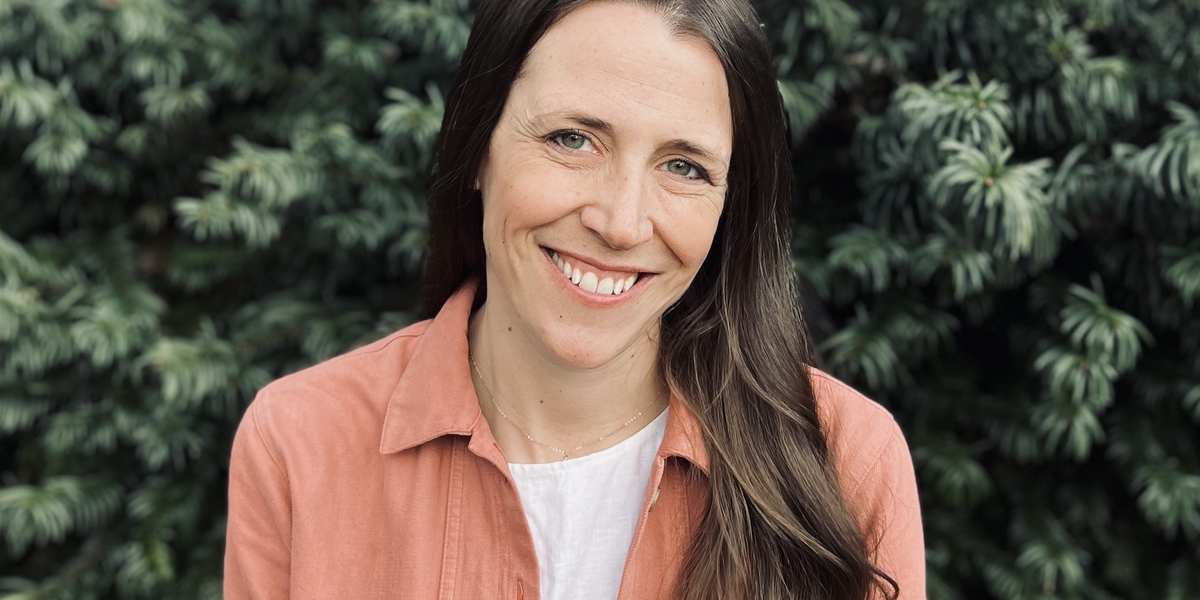
As a seasoned researcher who studies metabolism – the biological processes that keep your heart pumping, blood running, and energy up – Amy Hauck understands more than most the importance of incorporating regular sleep and exercise routines into one’s lifestyle.
“One of the more surprising things that I've learned a lot about, especially previously as a postdoctoral researcher, is the importance of biological rhythms in metabolic health,” says Hauck. She says that sleep, hormones, and even metabolic genes have cycles. Things can go a little biologically haywire if the cycles are disrupted. Hauck is an avid outdoors-person and parent in addition to taking on the daily grind of research, and she leans into the importance of rhythms now more than ever. “Even an hour of sleep, like during Daylight Savings time, can throw someone off.”
However, Hauck will be the first to admit that the biochemical issues underlying metabolic disease, like diabetes, for example, have much more complex mechanisms at play than simply how much (and when) we sleep. The new faculty member in the Department of Biochemistry, Molecular Biology and Biochemistry has been hard at work in the field of metabolic research for more than a decade. With her new position she’s leaning into understanding the role of metabolism in fat, liver tissue, and skeletal muscle especially.
Hauck is particularly interested in a class of proteins within these tissues called nuclear receptors, which can activate and repress thousands of other genes. “They’re very potent, and they’re a huge target for pharmaceuticals,” says Hauck. Understanding the way they integrate signals or respond under certain conditions could be life-changing for those dealing with related metabolic issues, like diabetes, insulin resistance and metabolic dysfunction-associated steatotic liver disease. “In my lab, I want to ask, ‘what are their gene targets? How might we turn them on and off?’”
Arriving back in Minnesota in early December to prepare for spring semester will be a full-circle moment for Hauck, who grew up in Minnesota and went to the University of Minnesota for graduate school after graduating from the University of San Diego with a bachelor’s degree in biology. Like many young undergraduate biology students, Hauck entered college with a dream of being a doctor. After graduating, she decided to wait a few years to apply to medical school. But when took a laboratory job at the University of Minnesota Genomics Center, she was surprised to develop an interest in research instead.
“I got to see really cutting-edge things happening at the Genomics Center,” she recalls, referencing new and next-generation sequencing technologies that were coming out at the time. “It was really cool to work with the best of technology to ask new questions that hadn’t been addressed before. It fit really well with my skill set and got me super excited about things.”
Hauk’s interest in human health has been constant. When she applied to the Biochemistry, Molecular Biology and Biophysics Graduate Program, longtime Professor David Bernlohr’s research on the metabolic relationships between insulin resistance and obesity caught her attention. After completing her graduate degree, she took a postdoc position at the University of Pennsylvania. Her arrival back at the University of Minnesota is timely and bittersweet as Bernlohr is about to step down for retirement. But she’s ready to be back in her home state – for lots of reasons.
“We’re really excited to be back in proximity to the lakes,” says Hauck. Her family members are avid hikers, backpackers and canoeists, so it’s unsurprising she carries a special place in her heart for the Boundary Waters, where she plans to take her two kids in the near future. The outdoorsy locale makes working and researching at the University of Minnesota extra sweet.
“It’s so clear we need to understand better how metabolic signals are interpreted by our body, and what we can do to optimize the way our bodies interact with our environment,” Hauck says. Being in her field of research means friends and family often turn to her for advice on lifestyle, medicine and more – questions she fields by gently reminding them that she’s not a doctor, and instead can only point to good resources for research. “It’s very motivating to know how important this kind of research is for every person. We're really trying to have a positive impact on the ability for people to be their most healthy selves.” – Adara Taylor